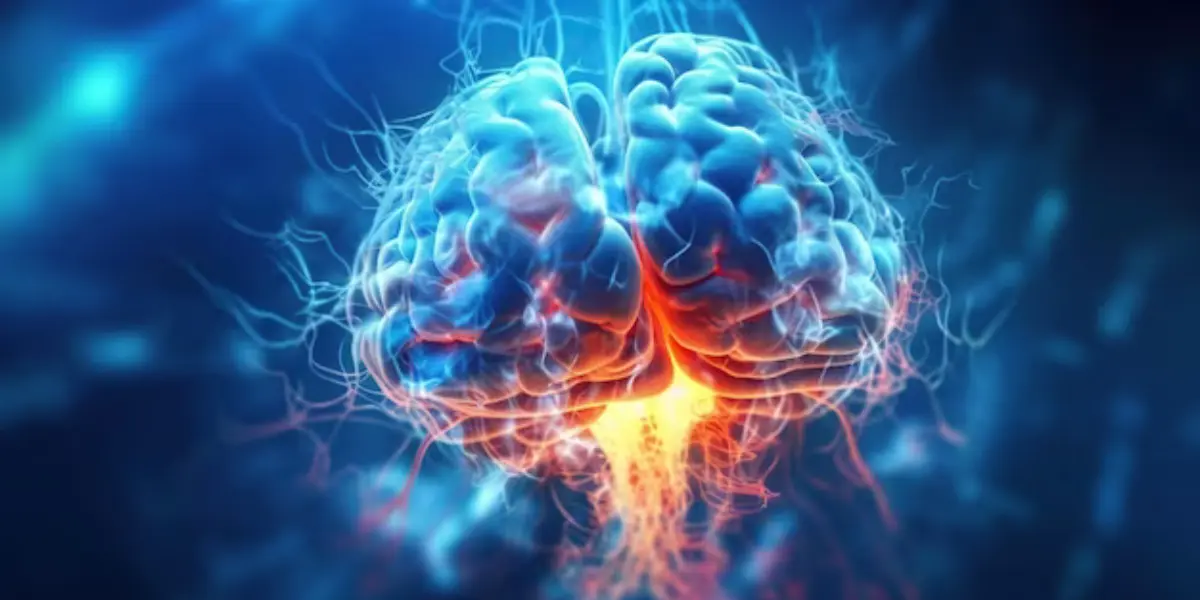Amongst numerous neurological conditions, Epilepsy is one of the most common ones. Across the globe, over 50 million individuals are living with Epilepsy, of which nearly 3.4 million are within the United States alone.
Epilepsy: Seizure Types, Symptoms And Treatment Options
Epilepsy can hit during different stages of life due to diverse causes. Although Epilepsy occurs and develops more during the extreme stages of life, its onset can be seen in kids and young adults as well. Repeated epileptic seizures commonly classify this long-term brain condition. Come, let’s dive deep into it.

Epilepsy Overview
Epilepsy is a neurological disorder or a seizure disorder caused by abnormal activities in the brain. This condition can be categorised as re-occurring and unprovoked seizures that may or may not involve other parts/ functions of the body.
What Is A Seizure?
A seizure is an episode of abnormal electric activity in the brain. Seizures commonly occur when the brain receives numerous abnormal signals, leading to voluntary and involuntary responses in the body.
However, not all seizures are Epilepsy since only the recurrent, unprovoked ones can be related to this condition. Epileptic seizures include two different types: Focal onset seizures and Generalized onset seizures.
What Are The Classic Symptoms Of Epilepsy?
Depending upon the type of seizure and the affected part of the brain, Epilepsy can show a range of symptoms. Some of the common symptoms include:
- Tingling, Numbness, or a sense of deja vu (during simple partial seizures).
- Jerking or twitching in different parts of the body.
- Confusion, repetitive movements and staring blankly (during complex partial seizures).
- Loss of consciousness
- Stiffness of muscles
- Rhythmic (jerking) movements
- Changes in breathing
- Loss of bladder control
- Brief loss of awareness (staring spells)
- Sudden loss of muscle tone leading to collapse
- Rapid, quick muscle jerks
- Constant staring or rapid blinking of eyes
- Fatigue or headache
- Auras include strange smells, visual disturbances, and more.
What Causes Epilepsy In Children And Adults?
The causes of Epilepsy are diverse and may vary amongst individuals. In fact, in most of the cases, the reasons remain unknown.
However, here are some of the known and common causes of Epilepsy that one should know about:
- Genetic component/ factor if someone in the family has a history of Epilepsy or risk of developing the condition.
- Brain abnormalities during birth due to infections, tumours or injuries. Conditions like strokes, malformation of cortical development, and brain tumours can be contributing factors.
- Traumatic head injuries from falls, accidents, etc, leading to brain tissue damage, may result in the risk of Epilepsy.
- Infections, including neurocysticercosis, meningitis, encephalitis, etc, can affect the brain, increasing the risk of Epilepsy.
- Metabolic disorders like mitochondrial disorders or phenylketonuria can be associated with Epilepsy.
- Prenatal development disorders due to genetic factors, infections or toxin exposure can increase the risk of Epilepsy.
- Certain neurological conditions like neurodegenerative disorders, multiple sclerosis, or Alzheimer’s can be associated with the risk of seizures associated with Epilepsy.
- Vascular conditions like strokes, aneurysms, or arteriovenous malformations (AVMs) may lead to Epilepsy.
- Autoimmune encephalitis or other autoimmune conditions affecting the brain can lead to seizures (or Epilepsy).
- Lastly, some developmental disorders, particularly autism spectrum disorder, can increase the risk of Epilepsy, especially in kids and young adults.
The Best Way To Prevent Epilepsy
Since 25% of Epilepsy seizures are preventable, focusing on preventive measures and proactive management strategies is important. According to the Central for Disease Control and Prevention (CDC), here are some of the preventive measures to follow:
- Prevent the risk of head (particularly brain) injuries by reducing the chances of falls and accidents. To do so, be cautious while playing any sport and encourage the use of seatbelts, helmets and child safety seats while travelling.
- Incorporate a healthy diet and exercise routine to reduce the risk of heart disease and strokes.
- Ensure adequate prenatal care and avoid injuries at all costs.
- Keep your vaccinations up to date to avoid risks of infections.
- Seek genetic counselling if you have a genetic history of Epilepsy
- Manage chronic conditions
- Avoid smoking, misuse of alcohol, illicit drugs, and certain medications.
The First Aid Of Epilepsy
Approximately 1 out of 26 people may have a seizure once in their lifetime. Since this condition is very common, everyone must learn about Epilepsy First Aid to help knowns and unknowns when in need. Especially since seizures do not require emergency medical help but effective first aid for patients’ immediate care and well-being.

If you observe someone going through an Epilepsy attack, remember the tips below:
- Remain calm and composed and be there with the concerned individual. Most seizures are brief and go on their own.
- Make sure the individual is away from any sharp or harmful object during the seizure attack.
- Gently guide the person to the ground on their side, ensuring their airway is clear. While doing so, make sure you prevent any head injury.
- Loose any tightened clothing to ensure proper breathing.
- Note down the time of seizure, as it can be helpful when communicating the situation to a healthcare professional.
- Once the seizure is gone, check the individual for any injury and ensure quick first aid.
- Allow the person the time to recover; however, once the individual is relaxed and alert, communicate about the seizure.
Main Treatment For Epilepsy
Treating Epilepsy involves managing and treating Epilepsy through different medical and therapy plans. Some of the common treatment options for Epilepsy involve:
- Antiepileptic medications to control/ prevent seizures.
- Vagus Nerve Stimulation to reduce seizure frequency.
- A high-fat, low-carb ketogenic diet, especially for children.
- Lifestyle modification involves diet, sleep, stress, activity levels, and more.
- Supportive therapies.
- Surgery for removing/ disconnecting the part of the brain responsible for seizure (though only in extreme conditions when all treatments fail).
Sum Up
Epilepsy is a very common neurological disorder affecting many individuals around the globe. Understanding different aspects of Epilepsy, from its symptoms to its causes, can help in managing effective treatment options. Not only that but learning about first aid and preventive measures is also important for affected individuals or the ones around them.
Although observing someone with Epilepsy (during seizures) can be dangerous, promoting awareness and reducing stigma is crucial.
References:
- InformedHealth.org [Internet]. Epilepsy In Children: Types and Treatment Options (https://www.ncbi.nlm.nih.gov/books/NBK561513/). Institute for Quality and Efficiency in Health Care (IQWiG); Cologne, Germany: 2020 Aug 27. Accessed 9/5/2023.
- American Academy of Pediatrics. Epilepsy in Children and Teens: Diagnosis & Treatment (https://www.healthychildren.org/English/health-issues/conditions/seizures/Pages/Epilepsy-in-Children-Diagnosis-and-Treatment.aspx). Accessed 9/5/2023.
- Centers for Disease Control and Prevention (U.S). Epilepsy (https://www.cdc.gov/epilepsy/index.html). Accessed 9/5/2023.